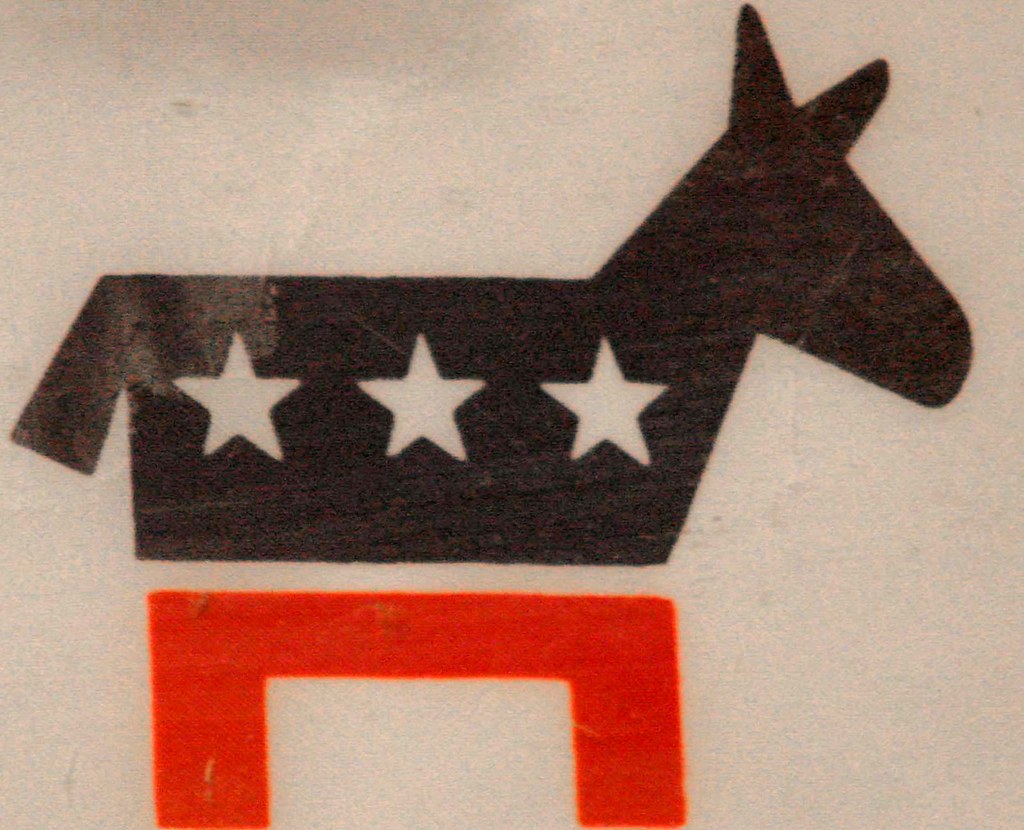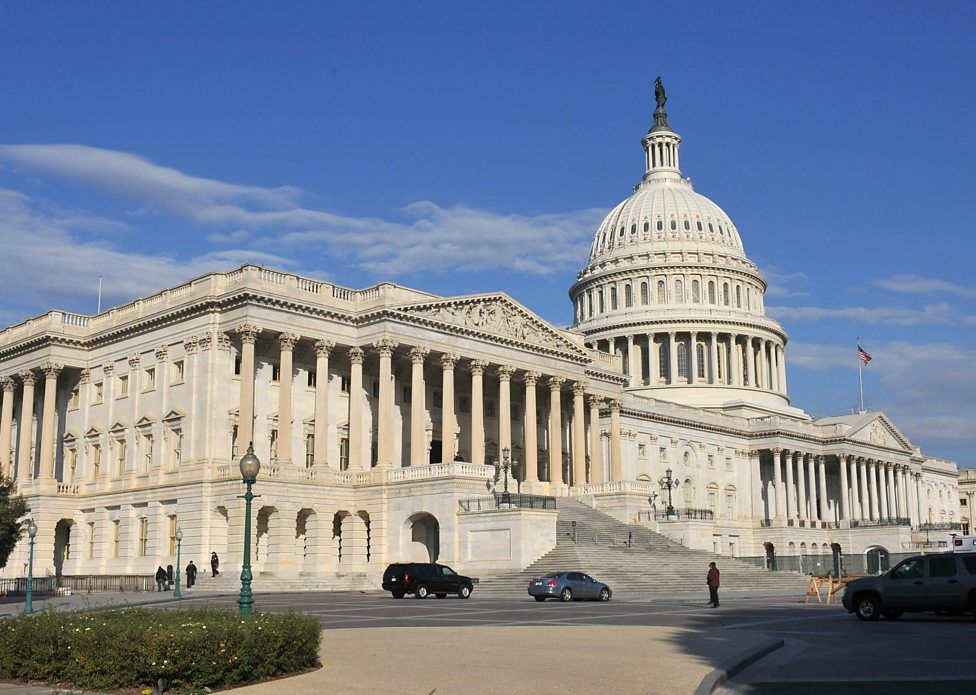
The assassination of conservative activist Charlie Kirk, an event that sent shockwaves through the American political landscape, particularly within conservative circles, has precipitated a significant period of political recrimination and demand for accountability. The activist was fatally shot last week in Utah during a college speaking event, triggering immediate expressions of grief and outrage across the nation. This tragic incident, however, quickly evolved into a contentious debate over political rhetoric and its perceived consequences.
In the direct aftermath of Kirk’s death, Rep. Ilhan Omar (D-Minn.), a prominent figure in progressive politics, became the focal point of intense criticism following remarks she made in an interview. Her statements, which addressed Kirk’s past commentary and the broader Republican response to the shooting, were swiftly interpreted by many on the right as disparaging and unsympathetic. This ignited a harsh backlash, leading to a cascade of condemnations and formal calls for her removal from congressional committees.
This article delves into the intricate web of reactions surrounding Representative Omar’s comments, examining the specifics of her statements, the legislative actions initiated by Republican colleagues, and the broader conservative outrage that ensued. It will provide a detailed account of the events, offering crucial context for understanding the intensifying scrutiny faced by the Minnesota congresswoman and the underlying political tensions that her remarks have brought to the forefront. The aim is to present an objective and in-depth analysis of a significant moment in contemporary American political discourse.

1. **Rep. Ilhan Omar’s Initial Controversial Statements and Context**Days after the assassination of conservative activist Charlie Kirk, Rep. Ilhan Omar drew significant scrutiny for an interview she gave to the progressive news outlet Zeteo. In her remarks, the “Squad” member critiqued Kirk’s historical commentary, particularly referencing his past statements that she said “downplayed slavery and what Black people have gone through in this country by saying Juneteenth shouldn’t exist.” This direct engagement with Kirk’s past positions set a contentious tone for her overall comments.
Omar also challenged the narrative that many were presenting about Kirk’s public persona. She stated, “There are a lot of people who are out there talking about him just wanting to have a civil debate.” She then sharply retorted, “There is nothing more effed up, you know, like, than to completely pretend that, you know, his words and actions have not been recorded and in existence for the last decade or so.” This was a clear rejection of attempts to frame Kirk solely as a proponent of civil political discourse, highlighting his contentious rhetoric.
The congresswoman further escalated her criticism by targeting Republicans who were attacking Democrats over their rhetoric in the wake of Kirk’s death. She asserted, “These people are full of s—. And it’s important for us to call them out while we feel anger and sadness, and have, you know, empathy, which Charlie said, ‘No, it shouldn’t exist,’ because that’s a newly created word or something.” This comment, marked by strong language, underscored her frustration with what she perceived as hypocrisy and a refusal to acknowledge Kirk’s own history.
Despite the sharp criticisms, Omar did express a degree of personal sympathy, stating, “Like, I have empathy for his kids and his wife and what they’re going through.” However, her overall tone and the substance of her commentary in the interview were widely perceived by conservatives as an unsympathetic view of Kirk’s murder. The New York Post reported that she openly mocked tributes to Kirk and dismissed claims of his promotion of civil political discourse.

2. **Rep. Buddy Carter’s Resolution to Remove Omar from Committees**The immediate fallout from Representative Omar’s Zeteo interview manifested in legislative action, spearheaded by Rep. Buddy Carter (R-Ga.). On the Monday following Kirk’s assassination, Congressman Carter introduced a resolution aimed at stripping Omar of her current committee assignments. This move signified a rapid escalation of the political tensions surrounding Omar’s public statements.
The resolution specifically targets Omar’s roles on two influential House panels: the House Budget Committee and the House Committee on Education and the Workforce. Notably, she holds a leadership position on the latter, serving as the top Democrat on its Subcommittee on Workforce Protections. The proposed removal from these committees represents a significant attempt to curtail her legislative influence and public platform.
Congressman Carter articulated his rationale for the resolution in strong terms, telling Fox News Digital that “Disparaging Charlie Kirk’s legacy, a God-fearing, honorable man, for boldly sharing his conservative beliefs is disgusting.” He further charged that “The radical left has normalized meeting free speech with violence, and it must stop.” These remarks framed Omar’s comments as an endorsement, or at least a justification, of violence against political opponents.
Emphasizing the gravity of his demand, Carter asserted, “No one who justifies the assassination of someone with different political views than them deserves to sit on a committee, and Ilhan Omar openly used language that incites violence toward her political opponents.” He concluded his condemnation by stating, “Committees are for serious lawmakers, not hate-spewing politicians.” Carter, who is currently running for U.S. Senate and sits on the House Budget Committee alongside Omar, directly linked her rhetoric to an unsuitability for congressional service.

3. **President Trump’s Direct Condemnation of Rep. Omar**The controversy surrounding Representative Omar’s comments quickly garnered attention from the highest levels of Republican leadership, including former President Donald Trump. On the Monday following the introduction of Rep. Carter’s resolution, President Trump publicly addressed the issue. His remarks came when he was specifically asked whether Omar should be removed from her congressional committees.
Responding to the query in the Oval Office, President Trump unequivocally condemned Omar, stating, “I think she’s a disgraceful person. A loser.” He further elaborated on his strong disapproval, declaring, “I think she’s a disgusting person.” These statements from the former President added significant weight to the chorus of conservative criticism against Representative Omar, amplifying the calls for her accountability.
Trump also voiced a broader sentiment about the electoral process concerning Omar, remarking, “It’s amazing the way people vote… I know it’s people from her area, maybe of the world, I don’t know, they got her and they vote her in. It’s hard to believe.” His direct and harsh language underscored the deep political animosity directed towards Representative Omar in the wake of her controversial statements.

4. **Congresswoman Nancy Mace’s Censure Resolution and its Provisions**Adding to the legislative pressure on Representative Omar, Congresswoman Nancy Mace (R-SC) independently filed a resolution to censure her, specifically citing Omar’s “vile comments mocking the assassination of Charlie Kirk.” This move, filed on September 15, 2025, just days after Omar’s interview, demonstrated a concerted effort within the Republican caucus to sanction the Minnesota Democrat.
Congresswoman Mace’s statement accompanying her resolution offered a sharp indictment of Omar’s conduct. She declared, “Ilhan Omar has shown us exactly who she is: someone who defends political violence and refuses to condemn the loss of innocent lives when it doesn’t suit her agenda, even the cold-blooded assassination of Charlie Kirk.” This framed Omar’s actions as a deliberate endorsement of violence rather than mere criticism.
Mace further emphasized the principle of consequences for such behavior. She asserted, “If you mock a political assassination and celebrate murder, you don’t get to keep your committee seat, you get consequences.” This statement directly challenged Omar’s right to retain her congressional positions following her public remarks.
The resolution itself contained several key provisions designed to formally reprimand Representative Omar. It called for her formal censure “before the full House of Representatives” and required Omar to “stand in the well of the House as the censure is publicly read aloud by the Speaker.” This ceremonial aspect was intended to serve as a public rebuke of her conduct.
Crucially, like Rep. Carter’s initiative, Mace’s resolution also sought to strip Omar of her committee assignments on both the House Education and Workforce Committee and the House Budget Committee. Furthermore, Mace’s press release noted that Omar had reposted the “Breaking Points” podcast interview on her own social media and had also shared a separate video calling Charlie Kirk a “stochastic terrorist” and a “reprehensible human being,” accusing him of promoting hatred.

5. **Omar’s Defense and Clarifications Amidst Backlash**As the backlash intensified, Representative Ilhan Omar took to social media platform X to offer a defense and clarification of her position. Acknowledging the profound disagreement she held with the deceased activist, Omar stated, “While I disagreed with Charlie Kirk vehemently about his rhetoric, my heart breaks for his wife and children.” This conveyed a personal expression of grief for the family, separate from her political critique.
Omar also sought to underscore her personal values and faith. She wrote, “I don’t wish violence on anyone. My faith teaches me the power of peace, empathy, and compassion.” This statement aimed to counter accusations that she was condoning or inciting violence, attempting to frame her stance within a framework of non-violence and humanitarian concern.
However, Omar also used her X post to directly challenge what she perceived as a distorted narrative by her critics. She asserted, “Right-wing accounts trying to spin a false story when I condemned his murder multiple times is fitting for their agenda to villainize the left to hide from the fact that Donald Trump gins up hate on a daily basis.” This introduced a counter-accusation, suggesting that the backlash was part of a broader political strategy.
These subsequent statements on X mirrored sentiments she expressed earlier in her Zeteo interview, where she explicitly said, “Like, I have empathy for his kids and his wife and what they’re going through.” Despite these attempts to convey empathy and condemn violence, her initial, strongly worded criticisms continued to fuel the controversy and calls for her removal from congressional roles.

6. **Broader Republican Outcry and Calls for Omar’s Resignation/Expulsion**Beyond the official legislative actions, Representative Omar’s comments triggered a widespread and fervent outcry across conservative media and social media platforms. The reaction was immediate and highly critical, reflecting a deep sense of outrage over her perceived insensitivity following Kirk’s assassination. This broader conservative response quickly escalated calls for more drastic measures against Omar.
Prominent conservative voices and Republican figures joined the chorus of condemnation. Florida GOP Rep. Randy Fine posted on X, “Ilhan Omar (D-Somalia) should never have been let into our country,” expressing a sentiment that questioned her very presence in American politics. This statement exemplified the personal and often inflammatory nature of some of the criticisms directed at Omar.
The influential conservative account Libs of TikTok also fumed on X, declaring, “Rep. Ilhan Omar (D) is now ATTACKING and SMEARING Charlie Kirk after he was assassinated. This is an elected representative. She needs to RESIGN. EVIL.” Such posts directly called for her resignation and labeled her actions as morally reprehensible, galvanizing a segment of the conservative base.
The outrage also extended to direct appeals to congressional leadership, with users tagging House Speaker Mike Johnson and demanding accountability. One such post asked, “@SpeakerJohnson FFS how much damage does this heinous woman how to do to the House of Representatives before she is expelled? What is the point of having rules of behavior when so many are violating them?” These widespread calls reflected a strong desire for immediate and severe consequences, including expulsion from Congress.

7. **Other Democratic Officials’ Reactions to Kirk’s Death**While Representative Omar’s comments drew the most prominent backlash from conservatives, other Democratic officials also offered views on Kirk’s assassination that stirred debate, often attributing the rise in political violence to broader societal factors or leadership rhetoric. Illinois Governor JB Pritzker, just hours after the shooting, publicly laid blame on former President Donald Trump. Pritzker stated to reporters that “Political violence unfortunately has been ratcheting up in this country,” directly connecting this trend to what he perceived as Trump’s rhetoric, noting, “I think the president’s rhetoric often foments it.”
Governor Pritzker further contextualized his remarks by referencing the recent murder of Melissa Hortman, the Democratic speaker of the Minnesota House of Representatives, suggesting a pattern of escalating political aggression. He also linked the current environment to the “January 6th rioters who clearly have tripped a new era of political violence,” although his comments notably omitted any mention of the two assassination attempts against Trump himself. This selective framing underscored a partisan interpretation of the origins of political violence.
Senator Mark Kelly (D-Ariz.) offered a somewhat more bipartisan assessment, spreading the blame for the incident. On CNN, Kelly asserted, “Political violence is never the answer. It divides us.” He then broadened his criticism, stating, “But also, I’ve got to say, political rhetoric, too, from both sides, often gets out of hand, and it incites people to do things like this.” This perspective sought to place accountability on the entire political ecosystem rather than solely on one faction.
Senator Kelly urged Americans to “think about … our words and the consequences of them, you know, from both sides of the political spectrum.” His remarks highlighted a concern that extreme rhetoric, regardless of its origin, contributes to an environment where violence can be perceived as an acceptable outcome. These statements from prominent Democrats reflect a nuanced, though still politically charged, attempt to understand and address the climate of political animosity in the country.
Read more about: TMZ’s Public Reckoning: Unpacking the ‘Tone Deaf Laughter’ Controversy During Charlie Kirk Death Coverage

8. **Local Government Figures’ Insensitive Remarks and Public Rebukes**The discourse surrounding Charlie Kirk’s death descended to particularly “ghoulish” levels in some local government circles, as officials leveraged social media to express overtly unsympathetic or even celebratory sentiments. Michael Kilbane, the City Council President of Fairview Park, Ohio, penned a shocking Facebook post that quickly garnered widespread condemnation. His comment starkly read, “A lot of good people died today. Charlie Kirk wasn’t one of them,” drawing immediate calls for his resignation from conservative outlets like Libs of TikTok.
Similarly, a battalion chief with the Toledo Fire Department reportedly issued deeply disturbing comments on social media, reflecting a profound lack of empathy. This official described the shooting as “totally preventable and avoidable if not for the policies and beliefs of people like” Kirk and “his uneducated hateful ilk.” The comment escalated further, with the chief reportedly expressing, “Wish the guy was a better shot,” and concluding that “No one would miss him and discourse would be better without him.”
The severity of these remarks from an individual in a position of public trust prompted immediate internal review. The Toledo Fire Department has reportedly launched an investigation into the chief’s social media post, underscoring the serious implications for public servants who express such sentiments. These incidents highlight the direct correlation between individuals’ public statements, especially those in official capacities, and the swift public and institutional consequences that can follow in a highly scrutinized environment.
Such comments from local officials not only reflect deeply ingrained political divisions but also raise questions about the professional conduct expected from those serving the public. The outrage and disciplinary actions demonstrate a societal demand for a degree of civility and basic human empathy, even in the face of profound political disagreement. The immediate backlash serves as a stark reminder that digital platforms amplify such statements, making them subject to widespread public judgment and accountability.

9. **Disciplinary Actions Within Federal Law Enforcement: The Secret Service**The wave of insensitive comments following Kirk’s assassination extended even to the ranks of federal law enforcement, leading to swift disciplinary action against an employee of the U.S. Secret Service. Agent Anthony Pough reportedly took to Facebook to express highly critical and unsympathetic views regarding Kirk’s death, directly challenging those who mourned him. His post, as quoted by RealClearPolitics, stated, “If you are Mourning this guy .. delete me. He spewed hate and racism on his show.”
Pough’s comment continued with a reflection on karmic justice, adding, “At the end of the day, you answer to GOD and speak things into existence. You can only circumvent karma, she doesnt [sic] leave.” These statements, coming from an agent sworn to protect national leaders and uphold law, quickly drew attention and condemnation. The nature of the remarks not only indicated a personal political stance but also appeared to be in direct contravention of the professional conduct expected from Secret Service personnel.
In response to inquiries from The New York Post, a Secret Service spokesperson confirmed that the agency was aware of the employee’s social media post. The agency swiftly announced action, stating that “the individual has been placed on administrative leave as we investigate the matter.” The spokesperson emphasized the Secret Service’s firm stance on professional integrity, asserting that the agency “will not tolerate any behavior which violates our code of conduct.”
This incident underscores the rigorous standards of conduct applied to federal law enforcement officers, particularly those in high-profile roles like the Secret Service. The immediate administrative leave signifies the gravity with which such public expressions of political bias and lack of professional decorum are treated, especially when they touch upon highly sensitive national events. It serves as a clear indication that even off-duty social media activity can lead to severe professional repercussions for individuals in such critical positions.

10. **Disciplinary Actions Within the Military: A Marine Corps Recruiter**The fallout from insensitive remarks also reached the United States military, specifically affecting a Marine Corps recruiter who faced severe consequences for his online conduct. The recruiter was summarily fired from his duties after posting an inflammatory image of Charlie Kirk on Instagram. The caption accompanying the image delivered a terse and dismissive message: “Another racist man popped.” This statement, perceived as celebrating Kirk’s death, violated the strict codes of conduct expected within the military.
The nature of the post, which appeared to mock the assassination of a public figure, immediately triggered internal review within the Marine Corps. Such public expressions of opinion, especially those that could be construed as condoning violence or exhibiting extreme partisanship, are typically forbidden under military regulations, which emphasize neutrality and decorum. The swift disciplinary action taken against the recruiter highlighted the seriousness of the breach.
Captain Austin Gallegos, a spokesperson for the Marine Corps, confirmed the actions taken against the individual. Gallegos stated to Task & Purpose that “The Marine in question has been relieved of his recruiting duties, and the matter is currently under investigation.” The removal from recruiting duties is a significant measure, often preceding further disciplinary actions, and signals a clear rejection of the individual’s behavior by the military institution.
This incident serves as a stark reminder of the unique responsibilities and limitations placed upon military personnel regarding their public and online speech. The imperative to maintain unit cohesion, public trust, and a non-political stance means that comments made even on personal social media accounts can have significant professional repercussions. The Marine Corps’ rapid response reflects its commitment to upholding its core values and maintaining public confidence in its members’ professionalism.
11. **Disciplinary Actions in Public Education: Teachers and School Officials**Public education, a sector often at the heart of community values and professional conduct, also saw disciplinary actions taken against individuals for insensitive comments made in the wake of Charlie Kirk’s assassination. In Massachusetts, AnneMarie Donahue, a teacher at Wachusett Regional High School, was placed on leave after a widely circulated Instagram post surfaced. Uncovered by Libs of TikTok, her post explicitly stated, “We’re NOT offering sympathy.” This remark was reportedly made mere moments after Kirk was fatally shot in the neck.
The rapid timing of Donahue’s post, coinciding almost immediately with news of the shooting, intensified the perception of insensitivity and a lack of professional judgment. Educational institutions often hold their staff to high standards of conduct, especially concerning empathy and the avoidance of politically charged or celebratory remarks about violence, regardless of personal views. The decision to place her on leave reflected the school district’s immediate response to public and community outrage.
Further illustrating the broad scope of these disciplinary concerns, in Florida, Lee County School District Commissioner Anastasios Kamoutsas publicly vowed to investigate “every educator who engages in this vile, sanctionable behavior.” This commitment followed a report from local outlet FOX 4 detailing another district employee’s concerning social media post. The post read, “What’s that about the cost of the second amendment being ‘some gun deaths every year,’ Bye Charlie,” and was accompanied by waving and fire emojis.
These incidents underscore the increasing accountability faced by educators for their online expressions, particularly when such expressions are deemed to be professionally inappropriate or to condone violence. The actions taken by school districts, from immediate leave to formal investigations, reflect a societal demand that those entrusted with shaping young minds maintain a level of decorum and respect in their public commentary, even outside of the classroom setting.

12. **Disciplinary Actions in Corporate Sectors: The NFL’s Carolina Panthers**The repercussions for insensitive public comments extended well beyond government and educational institutions, reaching into the corporate world, notably affecting a professional sports organization. The NFL’s Carolina Panthers axed their communications coordinator, Charlie Rock, following a review of his social media posts. These posts were deemed insensitive in the context of Charlie Kirk’s assassination, highlighting the broadened scope of accountability for employees across various industries.
One particularly scrutinized post by Rock reportedly alluded to Kirk’s manner of death. The former employee shared rap group Wu-Tang Clan’s song “Protect Ya Neck” and paired it with a video of Kirk. The accompanying caption, “Why are yall sad? Your mad said it was worth it …,” was interpreted as a callous dismissal of Kirk’s death and the grief surrounding it, while also implicitly criticizing those who mourn him. Such an action by a communications professional, whose role inherently involves managing public perception, was seen as a significant breach of professional conduct.
The decision by the Carolina Panthers to terminate Rock’s employment was reported by the Charlotte Observer. This swift action by a major sports franchise signals a clear stance against employees’ public expressions that are perceived as lacking empathy or professionalism, especially in the context of a national tragedy. Corporate entities, much like public institutions, are increasingly sensitive to how their employees’ personal views, particularly when shared on public platforms, can reflect upon the organization’s brand and values.
This event underscores a growing trend where private companies are compelled to take decisive action against employees whose online behavior conflicts with corporate ethics or public relations considerations. The swift termination serves as a powerful reminder that in today’s digital age, the line between personal and professional conduct is often blurred, and inappropriate public statements can lead to immediate and severe employment consequences, regardless of the sector.

13. **Broader Societal Implications of Political Rhetoric and Accountability**The extensive array of reactions and subsequent disciplinary actions following Charlie Kirk’s assassination profoundly illuminate the broader societal implications of political rhetoric and the escalating demands for accountability in public discourse. From the halls of Congress to local government offices, and extending through federal agencies, military branches, public schools, and even professional sports, the immediate consequences for perceived insensitivity or partisan gloating were swift and severe. These incidents collectively paint a picture of a nation grappling with the boundaries of free speech versus responsible speech, particularly for those in positions of influence or public trust.
The rapid retribution, often resulting in administrative leave, job loss, or formal censure, signifies a critical shift in societal expectations. There is an unmistakable public demand that individuals, especially those in official or representational capacities, adhere to a baseline of empathy and professional decorum, even when engaging with deeply divisive political events. The ease with which social media posts are amplified and scrutinized means that private opinions can instantly become public controversies, leading to professional repercussions that were perhaps less common in previous eras.
This period of intense scrutiny highlights a heightened sensitivity to political violence and the words that may be perceived to incite or condone it. The collective actions taken against multiple individuals, spanning diverse professions, demonstrate a societal pushback against rhetoric deemed to normalize or celebrate tragedy. It reflects a growing, though sometimes inconsistent, consensus that certain forms of public expression carry significant weight and potential for harm, necessitating a greater degree of caution and responsibility from all citizens, particularly those with public platforms.
Read more about: Unpacking the Outcry: TMZ’s Mea Culpa After Laughter Disrupts Charlie Kirk Assassination Coverage
Ultimately, the aftermath of Kirk’s assassination has served as a crucible for examining the fragile balance between freedom of expression and the imperative for civil society. It underscores the challenges of navigating an intensely polarized political landscape where words, whether spoken by a congresswoman or a local firefighter, can ignite widespread outrage and trigger profound personal and professional consequences. The call for accountability, whether legislative or social, continues to reshape the landscape of public commentary and the expectations for those who engage in it.




